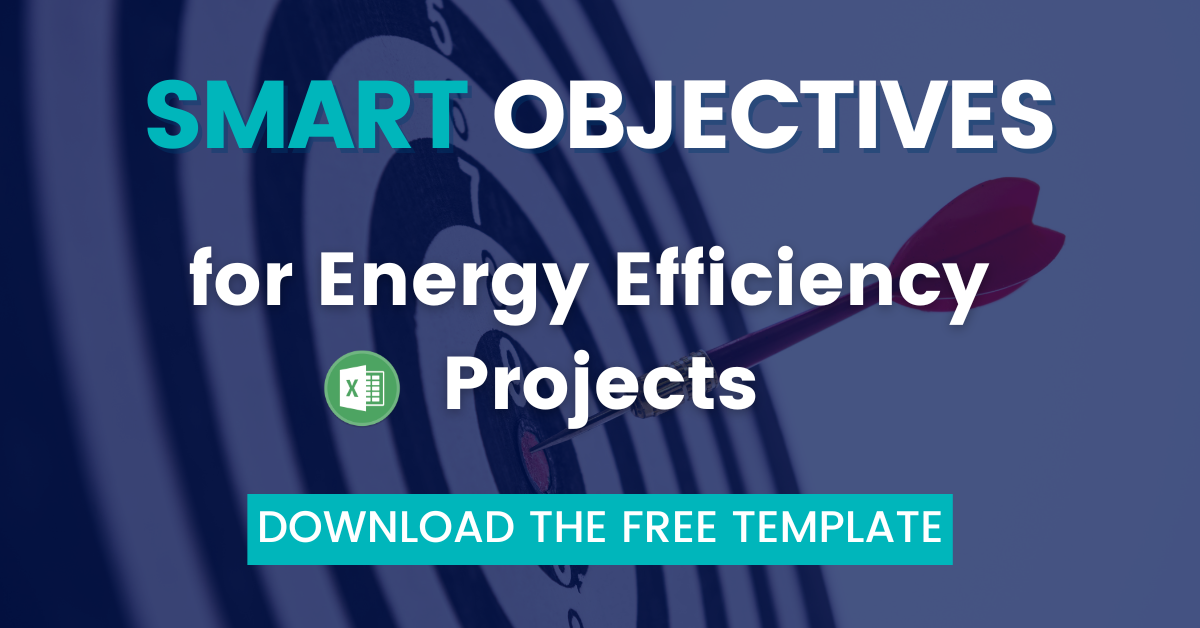As an energy manager, setting goals is a crucial aspect of your job that is often overlooked. However, it is also the core driver of your day-to-day activities and can lead to continuous improvement for your entire company. By setting goals, you can create a roadmap for achieving success and maximising the triple bottom line – people, planet, and profit.
Setting clear and measurable goals is essential for energy management. These goals should be aligned with the company’s overall strategy and objectives and should focus on areas where energy savings can be achieved. By setting ambitious targets, you can challenge yourself and your team to push the boundaries of what is possible and identify opportunities for innovation.
Moreover, goal setting provides a framework for monitoring progress and measuring success. By regularly tracking performance against established benchmarks, you can identify areas that need improvement and make necessary adjustments to achieve your targets. This process promotes continuous improvement and can lead to significant cost savings, improved environmental performance, and enhanced overall business performance.
Goal setting also promotes engagement and collaboration across the organisation. When energy management goals are communicated clearly and transparently, stakeholders can understand the objectives and take ownership of their role in achieving them. This creates a culture of accountability and collaboration, which fosters innovation and encourages the sharing of best practices.
As an energy manager, finding the time to sit down and set energy performance goals can be a challenge. With a million urgent tasks calling for your attention, it’s easy to put off goal setting or rush through it, resulting in vague and ineffective goals that lead to frustration and failure.
However, setting clear and measurable goals is essential for energy management and achieving success. That’s why we’ve developed a free tool specifically for energy managers to help you set energy performance goals more effectively.
With our Excel template, you can set SMART goals – specific, measurable, achievable, relevant, and time-bound – that are aligned with your company’s overall strategy and objectives. By taking the time to set these goals, you can create a roadmap for achieving success.
Our tool also provides a framework for monitoring progress and measuring success, allowing you to make necessary adjustments and course-correct along the way. By setting clear and measurable goals and tracking performance against established benchmarks, you can identify areas for improvement and optimise energy usage.
What is a SMART Goal
The key to performance-driven energy management is setting SMART goals. The SMART methodology first appeared in the November 1981 issue of Management Review by George T. Doran.
- Specific: Define what you aim to achieve without falling back on generic, vague descriptions. A clear, concise goal is easier to communicate and for your team to understand, whereas overly complex or ambiguous goals mostly lead to confusion and frustration.
- Measurable: Quantify what you want to achieve with specific energy industry metrics. Saying you want to “improve” at managing energy is not enough – how will you measure this? Identify the areas you want to get better at, and set a tangible number or KPI you want to reach.
- Assignable: Define who will be involved, their role, and how they will be held accountable. Goals without some form of ownership or accountability are rarely accomplished.
- Realistic: Be honest, but also ambitious! Striking a balance of difficulty is essential when setting energy management goals. If the goal is too easy, there will be little sense of accomplishment when it is reached. If it is too difficult, you and your team will feel let down when you fail to meet it. The ideal goal strikes a healthy balance between challenging and achievable.
- Time-bound: Set up a timeframe to achieve your goal. Will you achieve it in one week, one month or one year? And remember – time is money! Setting a deadline for your goal creates a sense of urgency; without one, things usually don’t get done. Make sure your deadline is realistically attainable, though. If you have a big goal, break it up into several small steps and set a timeframe for each.
In his article about energy management goal-setting, experienced energy manager and process engineer Magdy Aly suggests formally establishing energy performance goals by having them recognised by senior management as a mission for the entire organisation.
“Once the potential for improvement has been estimated, goals can be established at the appropriate organisational levels,” remarks Aly. One way to assess the improvement potential of your organisation is to try a virtual energy audit. Online tools like Spacewell Energy Dexma Detect tool are available to help with this.
Establishing SMART Goals for Energy Management
Here are a few examples of what a SMART energy management goal could look like:
“In Q1 2021 I will save €1,000 of electricity in our main building.”
“By June 2021 we will have the gas metering and analysis implemented with 10 new meters installed and the goal to save 5% on gas by the end of the year.”
Some more common ways of expressing energy performance goals include:
-
-
- Defined reduction – always presented in terms of a specific quantity or percentage decrease in energy use, such as a 10% reduction or a decrease of 300 million Btus.
- Best-in-class – aims for a certain level of performance compared to an established benchmark, which should also be specified.
- Efficiency improvement – expressed as a function of reducing the energy intensity of a specific performance indicator, such as 2 Btus per unit of product.
- Environmental improvement – translates energy savings into pollution prevention or reduction goals, usually quantified in CO2e or GWP.
-
Ready to start creating your own? Get your free-to-download template below: ⬇️




